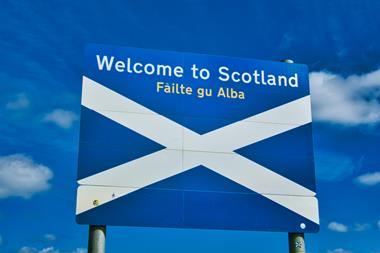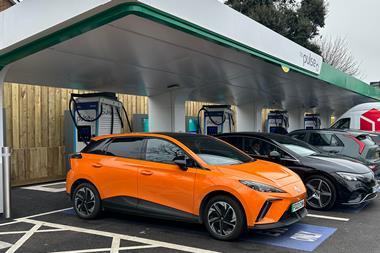Last month Booker Group plc surprised the industry by announcing a deal with Irish food wholesaler Musgrave Group plc, to buy its British offshoot, Musgrave Retail Partners GB which comprises the Londis and Budgens businesses for £40m. Completion of the acquisition is conditional on the approval of the Competition & Markets Authority (CMA) and Booker has already entered into talks with the CMA on the first 40 working day stage of this process. It is a process that Booker is familiar with as it had to clear the same hurdle when it took over the struggling Makro cash and carry business in 2013.
Londis is a 1,630 strong symbol retail chain of convenience stores, and sales in the year to December 2014 were £504m. Budgens is a franchised chain of grocery stores comprising 167 stores with sales of £329m in 2014. In the year to December 2014, Musgrave Retail Partners GB had sales of £833m and made an operating loss before exceptional items of £7.4m. This was an improvement on the previous year when it made a loss of £22.6m on an £899m turnover.
As the UK’s largest wholesaler with a 3,000-strong symbol group and more than 120,000 other retail customers, Booker has been under-represented in the forecourt sector, compared with its involvement in the overall market.
According to the latest Experian Catalist figures (see Fuel Market Review page 28) Booker’s Premier fascia appears on just 120 forecourts, while its nearest wholesale rival in terms of turnover, Palmer and Harvey, delivers to more than 750 Costcutter and Mace stores. Of course, many other forecourts will be topping up at Booker’s cash and carries, or receiving deliveries from them, but for a company aggressively pursuing growth, the forecourt sector must appear to offer it plenty of scope. Not only are there many potential new customers, but as profits from the fuel side dwindle it is a sector looking to develop the potential of its shops, increasing the attraction for any supplier.
While forecourts won’t have been a primary reason for Booker’s offer to buy Londis and Budgens from its Irish parent, it would make Booker a much bigger player in the sector. At a stroke it will take the number of symbol stores it supplies on forecourts to nearly 430, making it the third biggest supplier after P&H and Spar, which has 715 forecourt shops.
Experian Catlist says there are 265 Londis stores on forecourts and the company has been working to increase that number. It has a preferred supplier agreement with Certas Energy for all its brands, including Gulf, and just last month it announced it was forming a new forecourt team. In the announcement, which was made at the group’s annual conference, it said the move was a recognition of the importance of forecourts and their difference to standalone convenience. It added that the team’s aim was to make Londis best-in-class for forecourts.
Budgens has a smaller presence on forecourts, with 42, but that is more than a quarter of the overall total of 167 Budgens stores and it has made regular appearances among the winners of the Forecourt Trader of the Year Awards, including Symonds Forecourts’ Wells store, which won the overall award in 2012.
One of the points Booker has made about the deal is that it has a track record of turning around ’challenged businesses’. Booker itself was a failing business with massive debts when current chief executive Charles Wilson took over in 2005, but is now a cash-positive business that has increased sales by £1.7bn since 2008. It is also in the process of turning around Makro after a long period of failure under its previous owner.
Another obvious potential benefit of the deal is the synergies that can be generated. Musgrave Retail Partners has a high-qualilty supply chain, which Booker intends to retain, but it will be able to increase efficiency if it is also used to deliver to Booker customers including its Premier and Happy Shopper stores.
Booker has pledged that Budgens and Londis customers will be able to retain their brands but they should also benefit from Booker’s local and national supply chain. This will help improve the choice offered by the retailers to the consumer, and the increased scale and operational efficiency should help lower prices.
Commenting on the proposed transaction, Wilson said: "Booker, Londis and Budgens are joining forces to help independent retailers prosper throughout Great Britain. This transaction should strengthen Londis, Budgens, Premier, Family Shopper and other Booker retailers, through improving choice, prices and service to consumers. Overall it will help independent retailers prosper."
Chris Martin, CEO of Musgrave Group, said: "The grocery market in Great Britain is experiencing fundamental and permanent structural change, with intense competition and a deflationary environment. We carefully evaluated all of the possible options for our GB business, and having received a proposal from Booker, we concluded that a sale to Booker is the right thing for the group and would be the most advantageous outcome for our retailers, colleagues and suppliers in Great Britain.
"Booker will be a good fit for retailers and will continue to develop the Budgens and Londis brands utilising the supporting supply chain and head office. Retailers will benefit from Booker’s buying strength, an extensive operational footprint throughout Great Britain including a nationwide distribution and cash and carry infrastructure and a service culture that is proven to meet the needs of independent retailers."
Representatives of several companies in the Forecourt Trader Top 50 Indies were due to attend a meeting with executives of Londis, Budgens and Booker chief executive Charles Wilson as this magazine was going to press.
Susie Hawkins, a director of Simon Smith Retail, welcomed the deal. Her company has three Budgens stores in its seven-strong estate of forecourts, and she said: "I believe it could be a good thing for Budgens because of the extra buying power that Booker will have, and therefore we will be more competitive on pricing."
Nick Lloyd, managing director of Symonds Forecourts, which has three Budgens and two Londis stores in its eight-strong estate, said Booker was the best potential fit for Londis and Budgens. He said simplicity was Booker’s strength, and it would be able to unravel complexity which had burdened the business.
Ramsay MacDonald, head of retail at Certas Energy, was similarly positive about the prospects. Certas has Londis stores on its chain of company owned stores, and it has a preferred supplier arrangement with Londis across its dealer network. He said: "We eagerly await the next developments, should the deal receive clearance. Londis has, over the years, offered superb support for retailers with their branding, training and overall package. The backing of Booker could give them the economies of scale and infrastructure to make the brand more competitive, which is needed in the fight against the hypers for share of market."
If the CMA does give the deal the go ahead it will add more than £800m to Booker’s £4.8bn turnover and should give it the financial muscle to really take on the supermarket groups which have done so much damage to independent forecourt dealers in the UK.
Booker overview
Most forecourt dealers will know Booker as a cash and carry operator with its 172-strong network giving it nationwide coverage, but this is only one facet of the business.
In the year to March 2014 sales totalled £4.7bn of which £3.4bn were collected by customers from the group’s branches, but it delivered £1.3bn. In its latest results it also reported that 410,000 active customers bought £874m from Booker online.
The company also owns 30 Makro stores and Booker Direct delivers to national accounts including Marks and Spencer and Naafi.

































No comments yet